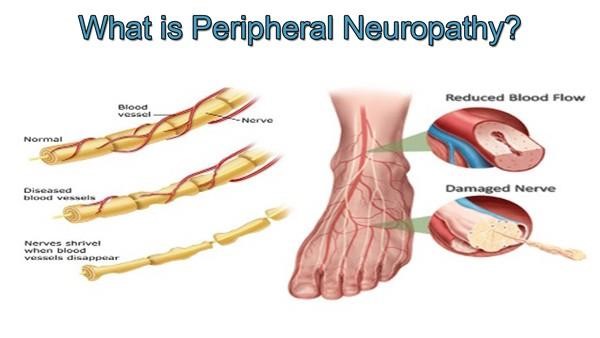What is neuropathy?
Peripheral neuropathy happens when the nerves that are located outside of the brain and spinal cord (peripheral nerves) are damaged. This condition often causes weakness, numbness, and pain, usually in the hands and feet.
What can cause a neuropathy?
- Diabetes
• Chronic alcohol use
• Vitamin deficiency such as B1, B12 or B6
• Trauma resulting in direct nerve injury
• Nerve compression exiting the spine
• Chemotherapy
• Hereditary such as Charcot-Marie-Tooth disease
• Auto-immune such as Guillain-Barre Syndrome and Chronic inflammatory Demyelinating polyneuropathy (CIDP)
How is it diagnosed?
It is diagnosed by physical assessment completed by your provider and sometimes the patient will need an EMG or a nerve study
What is the work up?
Lab work, history and physical exam, EMG
What is the treatment?
-
- Identification of the root cause
- Physical therapy for balance and movement
- Correction of lab work abnormalities.
- Nerve medications to help symptom management
Symptoms of neuropathy?
-
-
- Nerve pain that maybe described as a stinging or burning sensation.
- Pins and needles
- Tingling or itching
- Numbness
- Cramping
- Weakness
- Walking difficulty
- Recurrent falls
-
Different types of neuropathies.
-
-
Peripheral neuropathy (most common)
- Effects the peripheral nervous system which is the network that sends information from your brain and spinal cord to the rest of your body. It has many different causes including diabetes, injury and other disorders.
-
-
-
-
Autonomic Neuropathy
- Effects the nerves that control involuntary body functions like heart rate, blood pressure, digestion and bladder function.
-
-
-
-
Cranial Neuropathy
- Effects the nerves that control muscles and sensory function of face and head
-
-
-
Focal Neuropathy
- Effects a single nerve or nerve group and usually a result of trauma or injury
-
-
-
Mono-neuropathy
- Typically affects one or more nerves in different areas
-
-
-
Poly-Neuropathy
- Effects many or most of the nerves in the body
-

